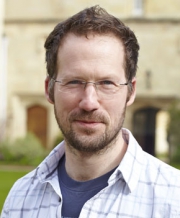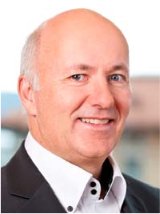Wednesday September 2nd, 9:00 hrs

INGMAR POSNER, Mobile Robotics Group, University of Oxford
Learning on the Job: Autonomy Based on Experience
The Oxford RobotCar Project aims to provide robust, long-term autonomous driving at a price point suitable for mass-market adoption. At its core, however, lies a philosophy fundamentally different to that fuelling more conventional autonomous driving research: autonomy when offered, as opposed to on demand. In this talk we will motivate this philosophy and provide an overview of the technology underlying our approach to autonomous driving and beyond.
Thursday September 3rd, 9:00 hrs

ROLAND SIEGWART, Autonomous Systems Lab, ETH Zürich
Design and navigation of robots that roll, run and fly
Robots are rapidly evolving from factory work-horses, which are physically bound to their work-cells, to increasingly complex machines capable of performing challenging tasks as search and rescue, surveillance and inspections, planetary exploration or autonomous transportation of goods. This requires robots to operate in unstructured and unpredictable environments and various terrains. This talk will focus on design and navigation aspects of wheeled, legged, and aerial robots operating in complex environments. Our wheeled robots are designed move on complex grounds or to autonomously drive in parking lots. For our quadruped walker we are researching optimal ways to exploit the natural dynamics and serial elastic actuation. With our UAV projects we approach autonomous flights and inspections in cluttered and very narrow indoor and outdoor environments as well as GPS denied visual navigation in cities. And our small solar airplanes are capable to stay in the air indefinitely and to fly close to ground thanks to on-board vision.
Friday September 4th, 9:00 hrs

MAJA PANTIC, iBUG group, Imperial College London
Automatic Analysis of Facial Behaviour
Human face is our preeminent means to identify the other members of our species and communicate affective and social signals. This talk summarises a number of aspects of human face and facial behavior and how they can be automatically sensed and analysed by computers. Past research in the field conducted by the iBUG group at Imperial College London and how far are we from enabling computers to detect, track and recognise human face and facial expressions is discussed in detail.
